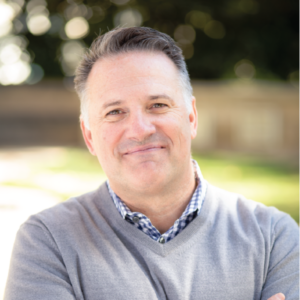Leading in Uncharted Territory
The only thing constant about change is that it is speeding up.
About 12 years ago, I heard a whisper for the first time. It was a pastor who was deeply discouraged and trying to make sense of why so much effort and faithfulness seemed to make bear such little fruit. Over the years, I would hear it over and over again.
“Seminary didn’t train me for this, Tod.”
Back then, I was serving a congregation as their senior pastor and on a commission to prepare my denomination for the future. I also started doing consulting and coaching in leading change with church and non-profit leaders. On one day, I was stunned when THREE of my colleagues all resigned from their churches on the same day. There were no affairs or scandals or renunciations of faith, just three good servants all threw in the towel overwhelmed by the task in front of them.
The circumstances were as different as the pastors themselves, but there was one thing they all had in common: their churches were struggling because so many of the approaches and assumptions of the past were no longer working.
The pastors hadn’t changed their beliefs; the churches hadn’t changed their values. The world around them changed. And was continuing to do so at even more rapid pace.
In one generation, the place of Christianity within culture dramatically shifted as we experienced what theologians and sociologists of religion call the “death of Christendom.” Christendom isn’t Christian faith. Christendom is the culture that supports Christian faith, giving Christianity privilege, priority, and place in our society. Christendom was the Los Angeles Times publishing a week’s worth of Bible readings in 1963, and thousands of small towns being developed with a library, courthouse and the “First Church of (whoever got there first)” in the middle of the town square. Christendom was churches who were thriving because everybody in town knew that your boss at work would be taking notice of who was a good “church goer.” Where everybody, including most non-Christians, all held pretty similar Christian values. Most of us had been trained by seminaries and in denominational structures that believed that if we focused our attention in this Christendom world on good preaching of the Scriptures, attentive pastoral care, and a few relevant programs for kids and youth then all will be well.
But over the past generation, those assumptions have been called into question. Churches of all kinds have seen diminishing attendance. Millennials are leaving the churches that raised them at the rate of 1 million a year and the growth of “nones”—those who when asked from what religion they belonged to, were beginning to answer “none” were climbing at skyrocketing rates. Many of us began to realize that the training that we received needed to be augmented with a different kind of leadership.
And the pace of change was just speeding up.
In 2015 I published a book about leadership in uncharted territory. That book used the metaphor of Lewis and Clark’s expedition as a way of describing the kind of adaptive leadership that is needed when you go “off the map” and face challenges for which you have no expertise. It teaches us to build trust through forming relational “holding environments,” to expect to experience loss when we let go of deeply held behaviors and expectations, and to become people who can literally learn as we go. It teaches us that we have to learn to manage competing values and we have to deal with sabotage and resistance—by the very people we are called to lead.
Canoeing the Mountains: Christian Leadership in Uncharted Territory has already sold nearly 90,000 copies. Over the past five years I have traveled half a million miles to three different continents and spoken to over two hundred churches and groups of pastors and leaders. Everywhere I have been there were church leaders all trying to learn how to lead when the “world in front of you is nothing like the world behind you.” And especially when those changes are coming so rapidly. 1800 years of Christendom expectations in the west have changed in one generation. It’s not just the change that is so disorienting, but the speed of change.
And that was BEFORE the coronavirus.
In under a month, literally everything about what we assume about what a church DOES changed. Sunday morning services? Small groups? Committee Meetings? Programs on our church campus? All cancelled… Even our Easter Sunday Services for many.
So, now what does ministry look like in this changing world? How do we clarify what should never change and at the same time prepare to let go of many things that are dear to us? What does it mean to be adaptive leaders who are able to go into uncharted territory when everybody has been thrust into it at the same time?
These are questions that I will be taking up with my colleagues at the De Pree Center for Leadership on a regular basis. Articles, resources, interviews, podcasts, links to books and conversations with other leaders will be featured here. I am excited about partnering with these colleagues, and I am eager to partner and learn along with you.

Tod Bolsinger
Executive Director
Senior Fellow De Pree Center Associate Professor of Leadership Formation Fuller Theological Seminary Tod Bolsinger joined Fuller Seminary in 2014 as vice president for vocation and formation and he now serves as Senior Fellow at the D...


